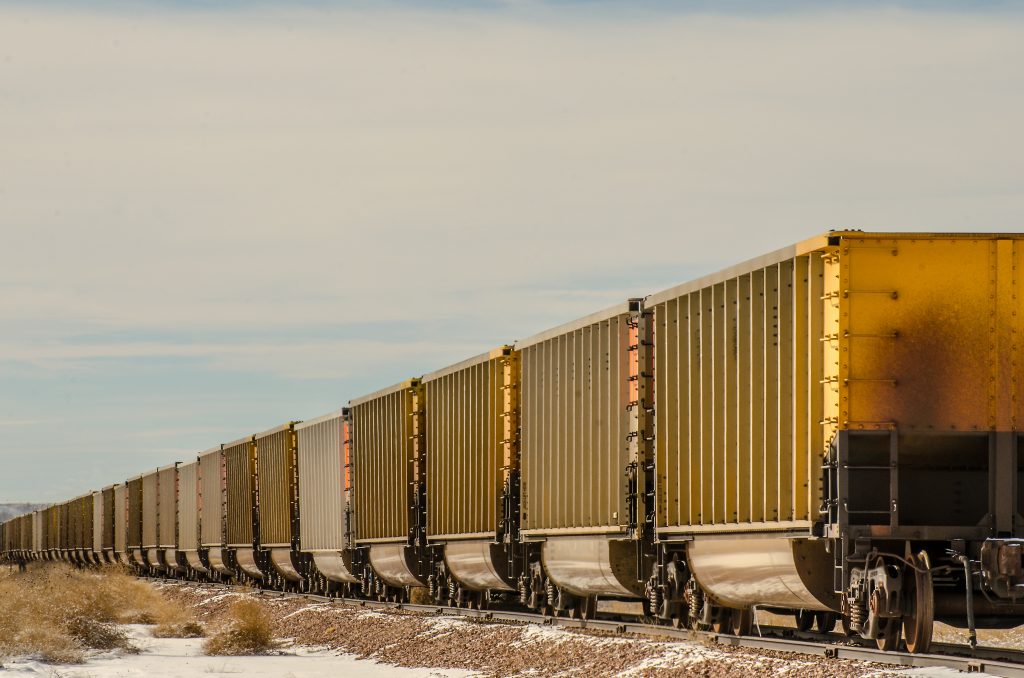National Biodiesel Board Increases Locomotive Use of Biodiesel
November 1, 2018 Ohio Soybean Council
The Ohio Soybean Council (OSC) invests soybean checkoff dollars into projects that help increase the usage of soybeans and bioproducts. Recently, OSC helped fund a National Biodiesel Board (NBB) project to expand the biodiesel market in locomotives.
The vast majority of biodiesel is made of soybean oil, making it a crucial part of the soybean value chain, with the potential for high-volume demand. Demand for biodiesel is increasing because it is clean-burning, better for engine health and reduces the United States’ dependence on foreign oil. In fact, several federal and state laws mandate or encourage using biodiesel.
With these factors in mind, NBB has been working with the locomotive market to increase demand for higher blends of biodiesel fuels. Currently, most locomotive manufacturers will not warranty their products for biodiesel use above B5, or a diesel blend with five percent biodiesel. NBB is working to educate railroads, locomotive manufacturers and the Association of American Railroads
about the benefits of higher blend biodiesel and encouraging them to make the switch to at least B20.
“Whether they want to fight it or not, policies across the country will be at a point where they will have to use B20,” said Scott Fenwick, technical director for NBB. His role at NBB includes ensuring there are no technical barriers for biodiesel to replace petroleum consumption wherever possible.
For Fenwick, the chance for railroads to use higher blends of biodiesel is mutually beneficial — soybean farmers benefit from an expanded market and railroads benefit by being able to market themselves as environmentally sustainable, with reduced soot and greenhouse gas emissions. Biodiesel is the first and only EPA-designated Advanced Biofuel in commercial-scale production across the country. As an Advanced Biofuel, biodiesel reduces greenhouse gas emissions by at least 57 percent and up to 86 percent when compared to petroleum diesel.
“While biodiesel is great and has a lot of benefits, we want to make sure those benefits are tied back to U.S. farmers,” Fenwick said. “As we expand the biodiesel industry here in the U.S., we start to reduce the need to export as many soybeans elsewhere.” Simultaneously, however, countries like Indonesia and India are pushing to use B30 biodiesel, meaning that biodiesel made from U.S. soybeans is in demand across the globe.
“It really comes full circle when you think about it: soybeans need trains for transportation and trains can use soybeans in the form of biodiesel for fuel,” said Tom Fontana, director of research and education for OSC. “Plus, locomotives and railroads could be an important market for biodiesel, which means increased demand for soybeans for our Ohio farmers.”
“Farmers in Ohio should be proud of the work that they’re doing to help expand the biodiesel industry. These increasing volumes that we’re pushing for in the locomotive industry are certainly going to demand more soybean oil,” Fenwick explained. “Soybean farmers are poised to really take advantage of all of that.”

Article Tags: Biodiesel | National Biodiesel Board | Ohio Soybean Council News | Ohio Soybean News

